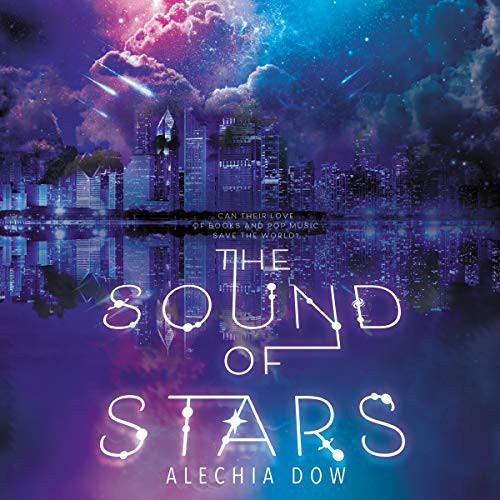G. Deyke recenzuje The Sound of Stars autorstwa Alechia Dow
[Adapted from initial review on Goodreads.]
2 gwiazdki
All right, I hope I'm being fair here. I'm aware that part of the reason I didn't like this book much was that it just very much wasn't for me - it has a specific target demographic (young teens who are immersed in pop culture) which I neither am, nor ever was, part of, and like much teen fiction with a more-or-less contemporary setting I found it somewhat alienating. The writing style, also, fails in the specific way that is pretty common (but not universal, which is why I keep trying) to writing for young people. Plus the basic plot - super-fast whirlwind romance between a disenfranchised person and a member of an oppressive class who is constantly pushing her sexual and romantic boundaries, but apparently that's fine and romantic and the start of something beautiful that will last forever even though they're teens who barely knew each other for …
All right, I hope I'm being fair here. I'm aware that part of the reason I didn't like this book much was that it just very much wasn't for me - it has a specific target demographic (young teens who are immersed in pop culture) which I neither am, nor ever was, part of, and like much teen fiction with a more-or-less contemporary setting I found it somewhat alienating. The writing style, also, fails in the specific way that is pretty common (but not universal, which is why I keep trying) to writing for young people. Plus the basic plot - super-fast whirlwind romance between a disenfranchised person and a member of an oppressive class who is constantly pushing her sexual and romantic boundaries, but apparently that's fine and romantic and the start of something beautiful that will last forever even though they're teens who barely knew each other for two weeks - is something that squicks me out. So those are my personal biases, which I'm trying to keep in mind are very much not objective.
I generally consider reviews something of a service to authors, for which reason I rarely bother if it's going to be negative anyway. The reason I think this is worth writing is that Janelle is described as aspec, which I think makes it cross the line from "just very much not for me" to "actively harmful".
Janelle is described as "demi-ace", which is not a specific label I've heard before, but sounds similar enough to "demisexual" that I'm inclined to conflate them. The description given is that she's attracted to people, but not inclined to date or kiss or have sex with them until she knows them well and has developed a friendship. For comparison, the usual definition of demisexuality is not being sexually attracted to people until one knows them well. I've also seen it directly contrasted with this idea of being-attracted-but-not-wanting-sex-straight-away, which I thought was - and have definitely seen described as - normal allosexual behaviour, although it's obviously not entirely universal (as evidenced by the very existence of prostitutes and one-night-stands).
Regardless of definition, it pretty much gets thrown out when she meets [the alien she knows as Morris], because again: within less than two weeks, she goes from "happy to die a virgin" to "maybe we should have sex while we have the chance".
The whole "you just haven't met the right person yet!! :)" narrative is never great, but it's worse when applied to someone who's nominally aspec. Combined with the deeply uneven power dynamic and the way [Morris] keeps pushing her boundaries, "asking for consent" without explaining what for (remember: uninformed consent is not consent), &c., the book leaves a really bad taste in my mouth. Some of his pushing is explained away as being because he's alien and doesn't understand human social conventions, which is fine as far as it goes, but the fact that she basically never reacts with discomfort to it is, in context, not.
I'm sure there are people who will feel seen by this book. But I can't help but imagine a young aspec person, who maybe has done enough research to accept that label for themself but is still inundated with the message that they're broken, reading this book and thinking "here is someone like me" - and then seeing it modelled that there is a route to happiness/wholeness via romantic love after all, and all you need to do is find "the right person" and react to advances as though they're flattering rather than uncomfortable. Like if you just go along with everything they say, your boundaries will no longer matter to you, either.
Which, you know, not a good thing.
Again, I'm sure there are people who will feel seen by this, and I'm sure there are people to whom these things won't matter. It does reasonably well with gender, at least, and I guess young teens who are super into pop culture are going to like it more than I did. But if you're looking at this because of alleged aspec representation: really, probably don't.

